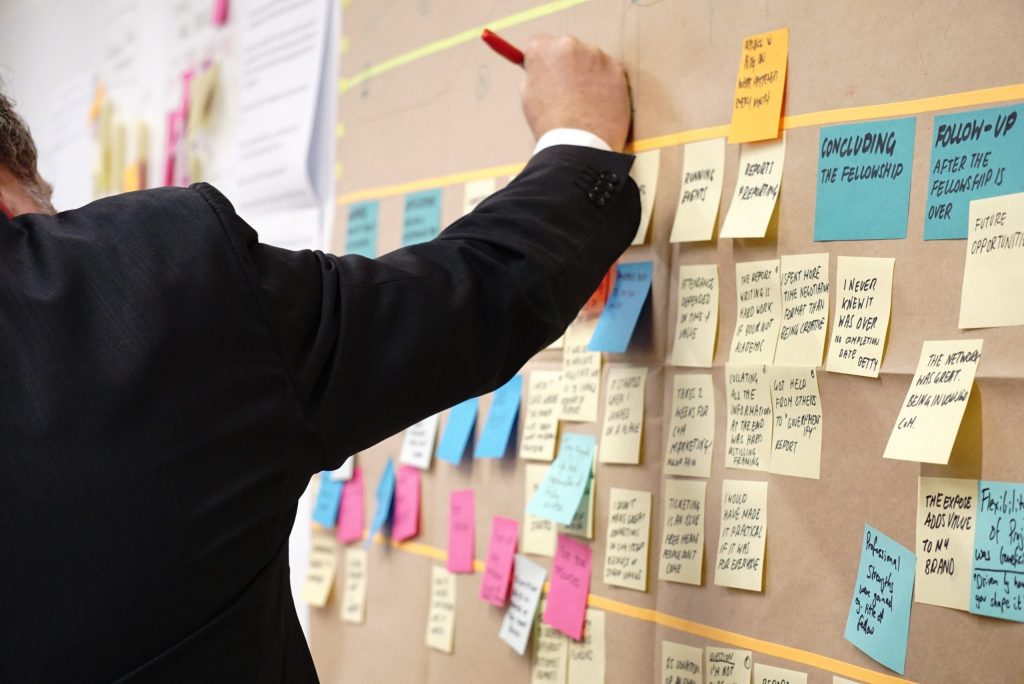
Projects tend to fall into two camps- they are fairly rigid and structured, or they are more nebulous and free–flowing. Depending on which type your project is, reflection/revision may look different. If the project is more rigid, like a project where the steps and outcomes have already been submitted (like for a grant), the reflection would likely be a post-project follow-up. If the project is more free-flowing, like a project where some (possibly self-set or vague) goals are the only structure the project has, the reflection is more likely to be an ongoing revisionism of the project. Regardless, the reflection is going to look fairly similar, even if the tenses are going to be different. The follow-up is going to be looking for things to do differently next time, while the revision will look for things to change now.
New goals:
This can do a couple of things, including broadening the scope of what the project is trying to accomplish or provide more structure to a project. Depending on team size and resources available, differently sized projects are preferable. Goals are the easiest way to change the size and scope of a project, so ask yourself if there is an appropriate ratio of stuff to do to people able to do it. If there is too much stuff to do, consider revising or splitting the goals into smaller, more specific goals. If you have more manpower than needed for the current goals, go the other way. Try adding new objectives, or take current goals and broaden their scope or objective.
New approaches:
If the current way you are trying to do a thing isn’t working, try doing it a different way! Alternatively, the current way might be working, but a different approach might be more effective or efficient. The right approach will vary wildly depending on the team and what is trying to be accomplished, so try to keep an open mind and be open to new possibilities.
New objectives:
If goals are the destination, objectives are the steps taken to reach them. If a particular objective is being troublesome, try either a different approach or a different objective that would still work towards completing your goal. Or change your goal. If the goal of a project changes, the objectives are likely going to have to change with it, so keep that in mind and be flexible.
Replication:
If a project is great and worked in one place, people are likely going to want to repeat it somewhere else. Different places are going to have different wants and challenges though, so a perfect repeat is likely not going to be effective, but having a list of choices and actions, why you did them, and the impact they had can help either future you or a different team take your project and tailor it to fit the new place.

